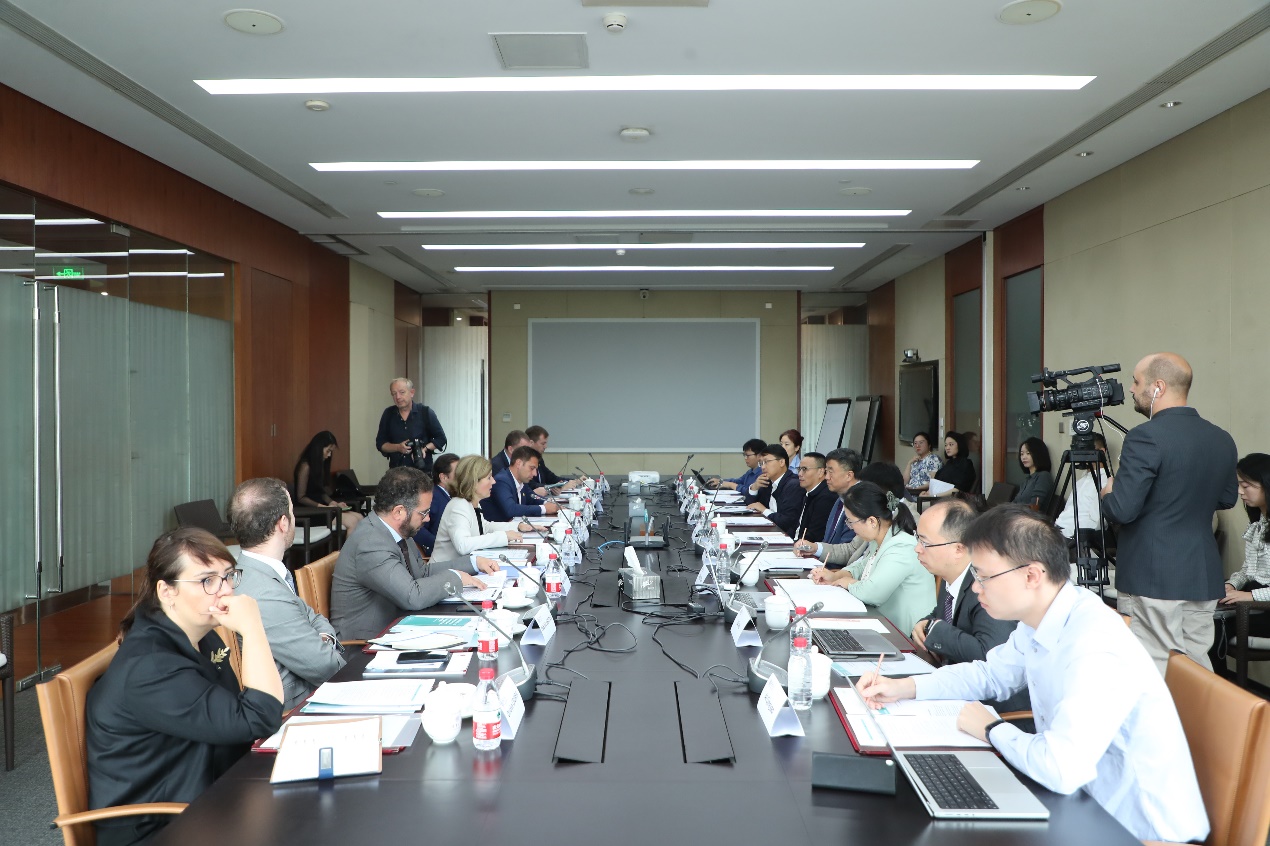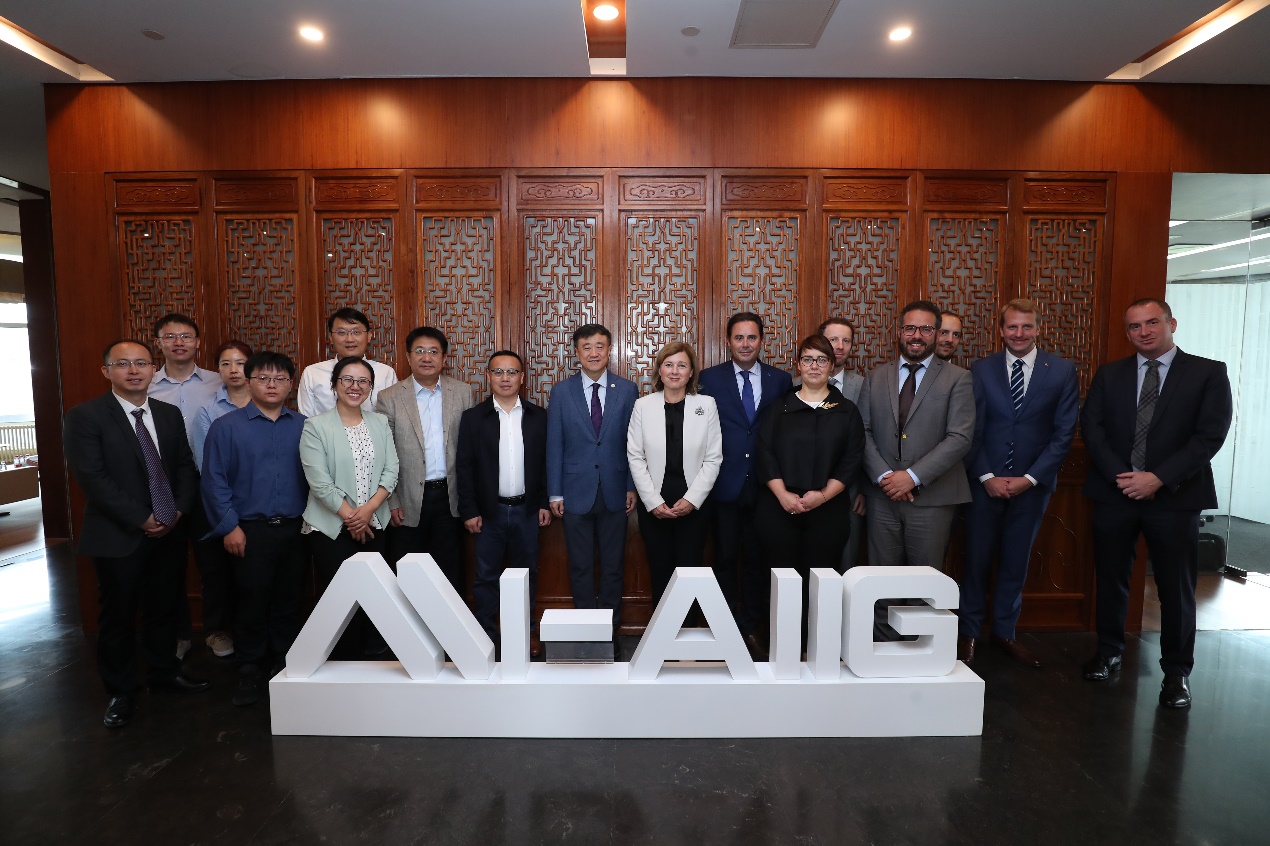On September 19, European Commission Vice-President Věra Jourová and the Ambassador of the European Union to China, Jorge Albiñana Toledo, visited Tsinghua University's Institute for AI International Governance. They engaged in substantive discussions with experts and scholars from Tsinghua regarding the governance and regulation of artificial intelligence. The delegation was welcomed by Tsinghua University Vice President Yang Bin.

During the meeting, Yang extended a warm welcome to Jourová and her delegation, emphasizing Tsinghua's commitment to advancing scientific research, technological innovation, technology governance, and ethical education in the field of artificial intelligence. In recent years, Tsinghua has established several prominent institutes, including the Institute for Artificial Intelligence, the Institute for AI International Governance, and the Institute for AI Industry Research. Additionally, Tsinghua has launched the International AI Cooperation and Governance Forum, which serves as an inclusive platform for international collaboration.
Notably, the 2023 International AI Cooperation and Governance Forum, jointly hosted by Tsinghua University and the Hong Kong University of Science and Technology (HKUST), is scheduled to convene in December at HKUST. Yang expressed his hope that this forum will serve as an opportunity to further engage with European universities and institutions, collectively driving the responsible and wholesome development of artificial intelligence.
Jourová acknowledged the rising significance of AI governance and regulation on a global scale, particularly given AI’s profound impact on various aspects of society, most notably in the realm of education. She underscored the pivotal role of universities in propelling AI scientific research and underscored the importance of research endeavors in the domain of AI ethics to steer technology on ethical and positive trajectories.
The event saw the participation of representatives from Tsinghua's Institute for Artificial Intelligence, the Institute for AI International Governance, and the Institute for AI Industry Research, as well as experts from the School of Law, the Department of Computer Science and Technology, and the School of Social Sciences.

Editor:Li Han

